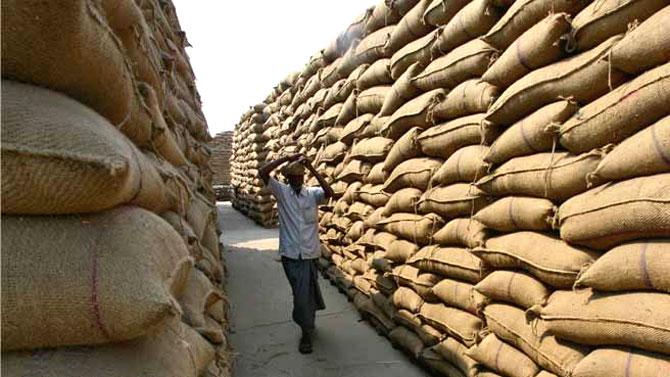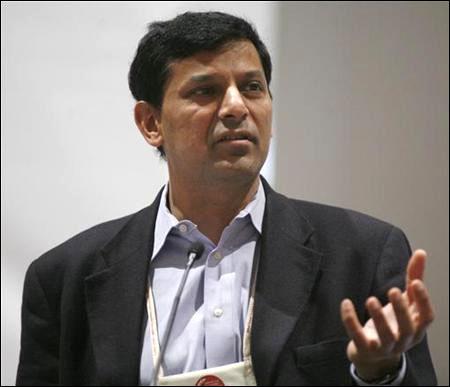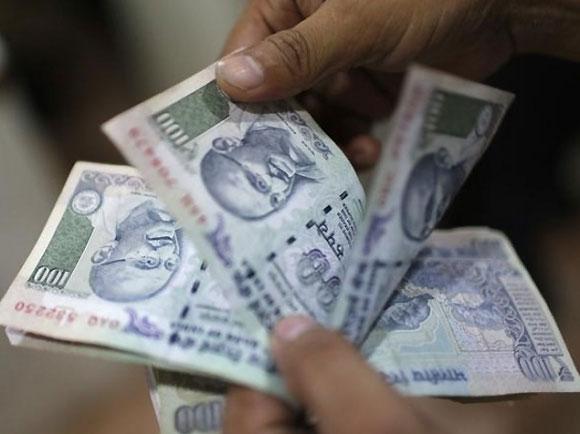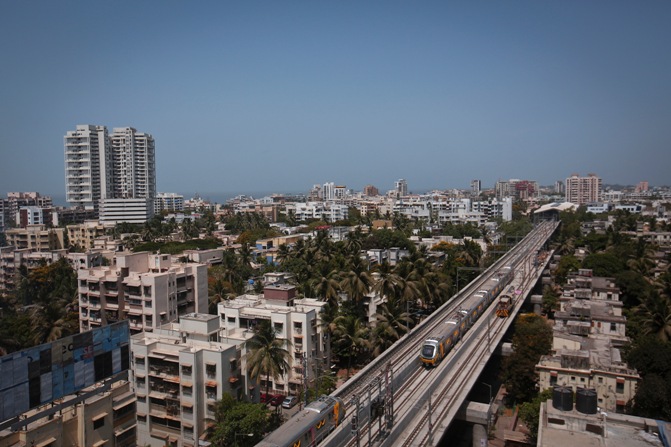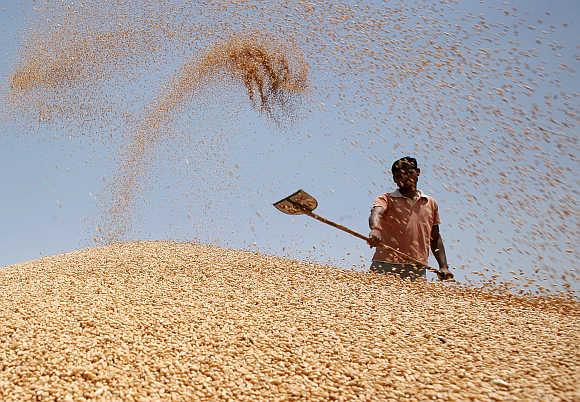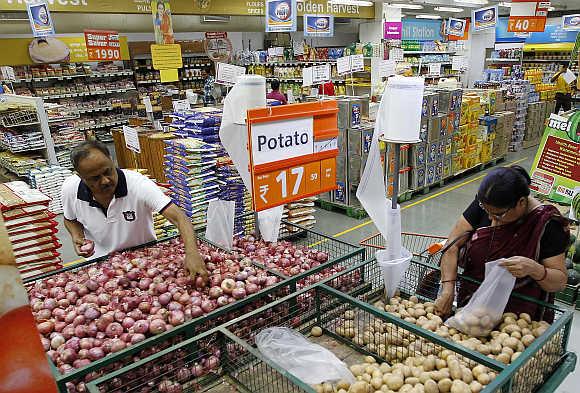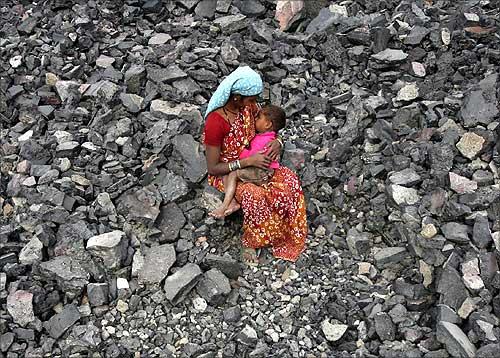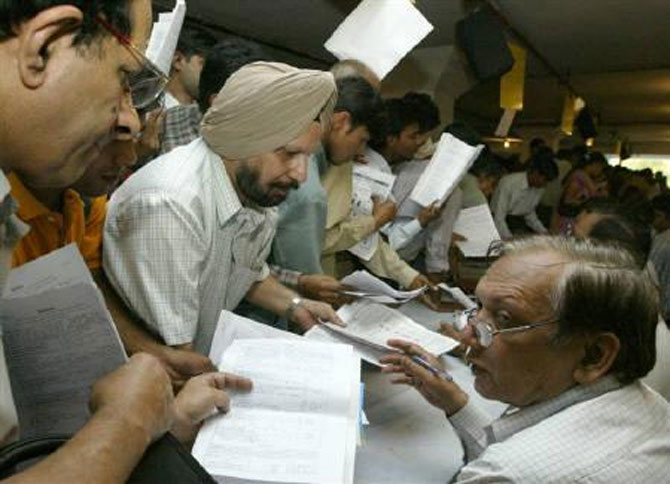 | « Back to article | Print this article |
Reviving the economy: What the next government should do
The new government will have to start by addressing some key policy concerns, says Ganesh Natarajan, and draws up a checklist.
Continuing our series on the state of the Indian economy ahead of the general elections.
Part I: From boom to doom: An uphill task to revive the economy
Part II: It will take three years for economic growth to pick up
Part III: 'US economy needs to improve for India to turn around'
The economic news has been largely negative for over two years now.
After flattering to deceive and reaching the significant level of nine per cent gross domestic product growth (when?), the next two years have seen an alarming decline in most economic parameters.
While it would not be unfair to blame the decline partly on the ongoing problems of the global economy, there is no denying the fact that it has been errors of omission and commission that have caused our slip from being a proud Brazil, Russia, India, China nation to one of the fragile five by the end of 2013.
The data points continue to be weak -- note the following. . .
Credit rating agency Moody’s has forecast a weaker than expected economic recovery in the second half of 2014, subject to global recovery being sustained.
Click on NEXT to read further. . .
Reviving the economy: What the next government should do
It has also cautioned that the outcome of the national election in April-May could affect growth ‘depending on how it impacts sentiment and policies’.
Moody’s has rated India Baa3, its lowest investment grade rating, with a stable outlook.
They have also suggested that the Indian government’s debt ratios and fiscal deficits would remain higher than similarly rated peers through 2014.
The World Bank has lowered its forecast on India’s economic growth to 6.2 per cent in 2014-15 from its earlier estimate of 6.5 per cent.
But that’s significantly higher than the 4.8 per cent growth the Bank estimates for this fiscal year as it expects global demand and domestic investment to improve, though there are significant risks they have pointed out that could wreck the recovery party.
Click on NEXT to read further. . .
Reviving the economy: What the next government should do
Moody’s has been more moody, suggesting that the growth in FY 15 will not exceed 5.5 per cent.
Even within the country, there has been dismay and alarm at many of the steps taken by the government in the first few years of its second term and it is only in the last six months or so that the measures taken by both the finance ministry and the Reserve Bank have restored a modicum of confidence to industry and to the economy.
Reserve Bank of India Governor Raghuram Rajan has done a lot in his brief tenure to restore confidence within and outside the country.
The rupee was among the world’s worst-performing currencies last summer, losing more than 20 per cent of its value against the US dollar between May and August, reflecting a rush of capital out of emerging markets.
Click on NEXT to read further. . .
Reviving the economy: What the next government should do
Rajan managed to stabilise the currency and buy time by taking innovative steps to attract capital back to India.
A programme to attract deposits from non-resident Indians has risen better than expected $34 billion in foreign exchange reserves.
This coupled with the tough decision of raising interest rates at a time when economic growth was already slowing sharply, has resulted in the rupee now trading close to 60 per US dollar, up from the lows of nearly 70 in August.
In spite of the expected acceleration of tapering in the US bond buying programme and the subsequent pressure on the Indian rupee, the Reserve Bank of India feels that India is better prepared now than in the summer to weather the Fed’s moves, though there could be some volatility in the local markets.
Click on NEXT to read further. . .
Reviving the economy: What the next government should do
The infrastructure investment in the country, which had seen substantial delays in project clearances, are slowly getting done with the Cabinet Committee on Investments going in to overdrive from June of last year.
Over $65 billion, involving 120 mission critical projects, will boost the laggard power sector and some signs of construction activity pickup are already evident.
The finance ministry’s measures have also ensured that the current account deficit is limping back to normal though the risk of imports surging again with the recovery in the economy still exist.
Even as the worst seems behind us, we must not forget challenges that we will continue to face in the coming year.
Click on NEXT to read further. . .
Reviving the economy: What the next government should do
While social welfare measures like the Food Security Act passed last year will raise the government’s medium-term expenditure, it can be expected that a balanced approach between growth and development could set the economy on a path to slow if somewhat unspectacular recovery.
We have been fortunate to have a good monsoon and agricultural growth will improve with the resultant increase in demand for rural India’s produce.
India’s economic health, however, remains precarious.
Inflation has been rising, fuelled by a spike in food prices and the rupee currency’s fall earlier in the year.
Click on NEXT to read further. . .
Reviving the economy: What the next government should do
What can any new government do to address all the challenges we face in the economy and restore much-needed confidence?
They will have to start by addressing some key policy concerns.
News on the inflation front has been discomforting, reflecting enormous difficulties for the common man, and the government is also pressing for lower rates to stimulate the economy, ahead of the federal elections.
The new government will have to seek much greater investment in the food sector, especially in marketing and distribution perishables which cannot be addressed simply by pronouncements like the Food Security Bill but will have to see solid action on the ground.
Click on NEXT to read further. . .
Reviving the economy: What the next government should do
Indian agriculture needs accessible and well-maintained infrastructure, including water and power supply.
Better infrastructure is in fact a requirement across the board and the trillion dollar investments that have been spoken about needs to see words converted to robust action on the ground.
The manufacturing sector, which has been steadily declining as a percentage of the country’s gross domestic product, needs to be put on a priority growth path.
While a road map has been laid out in the National Manufacturing Policy, progress on policy implementation is required to build confidence.
State governments will need to acquire land to carve out manufacturing zones in which state-of-the-art infrastructure will have to be built.
Click on NEXT to read further. . .
Reviving the economy: What the next government should do
Simplification of business resolutions and speedy completion of the Delhi Mumbai Industrial Corridor and subsequently the corridors between Bengaluru and Chennai and Mumbai will give the much-needed confidence to the sector.
These corridors also need significant IT and telecom support to ensure that information flows can match the logistics flow.
Resolution of issues in the mining sector is also a priority for the sector.
The ICT industry itself needs significant boost.
While software exports continue to shine and even after curtailment of all tax benefits, the Indian share of global software sourcing has gone up to 55 per cent, far ahead of competitors like China.
Click on NEXT to read further. . .
Reviving the economy: What the next government should do
However, the spending on e-government projects continues to be abysmal and strong proactive investments in fibre and broadband across the length and breadth of the country is essential to create a platform for IT enabled success -- in manufacturing, services, healthcare, education and even agriculture.
The new government may be able to meet its deficit target for 2013-14 but great discipline will be needed towards fiscal prudence in the next few years.
Government spending has to be brought down and income from non-tax sources such as disinvestment of public sector companies or telecom auctions should not be seen as a short term fix to bridge deficits.
Subsidies on food, fertilisers and fuel will have to be curtailed and revenue collection from all sectors of the economy will have to be maximised.
Click on NEXT to read further. . .
Reviving the economy: What the next government should do
The implementation of goods and services tax is a must for 2014-15.
As Chandrojit Bannerjee, Director General of the Confederation of Indian Industry has pointed out, “The Indian economy stands at a critical juncture today.
“It has successfully tackled some macroeconomic problems such as the widening of twin deficits and currency depreciation.
“But equally challenging problems in the form of a growth slowdown and rising food inflation persist.
“The new government will have to hit the ground running on economic policy in order to provide confidence to investors.
“Enlightened action by a new government is required to put the economy back on track.”
With all the compulsions and contradictions that any new government will face, particularly if it is the inevitable coalition, many of these ideas may be difficult or delayed in implementation.
But the next prime minister will have to bite the bullet and take robust action to get India back to the path to success we all expect and deserve!
Dr Ganesh Natarajan is Vice Chairman and CEO of Zensar and a member of Nasscom and CII’s National Councils

